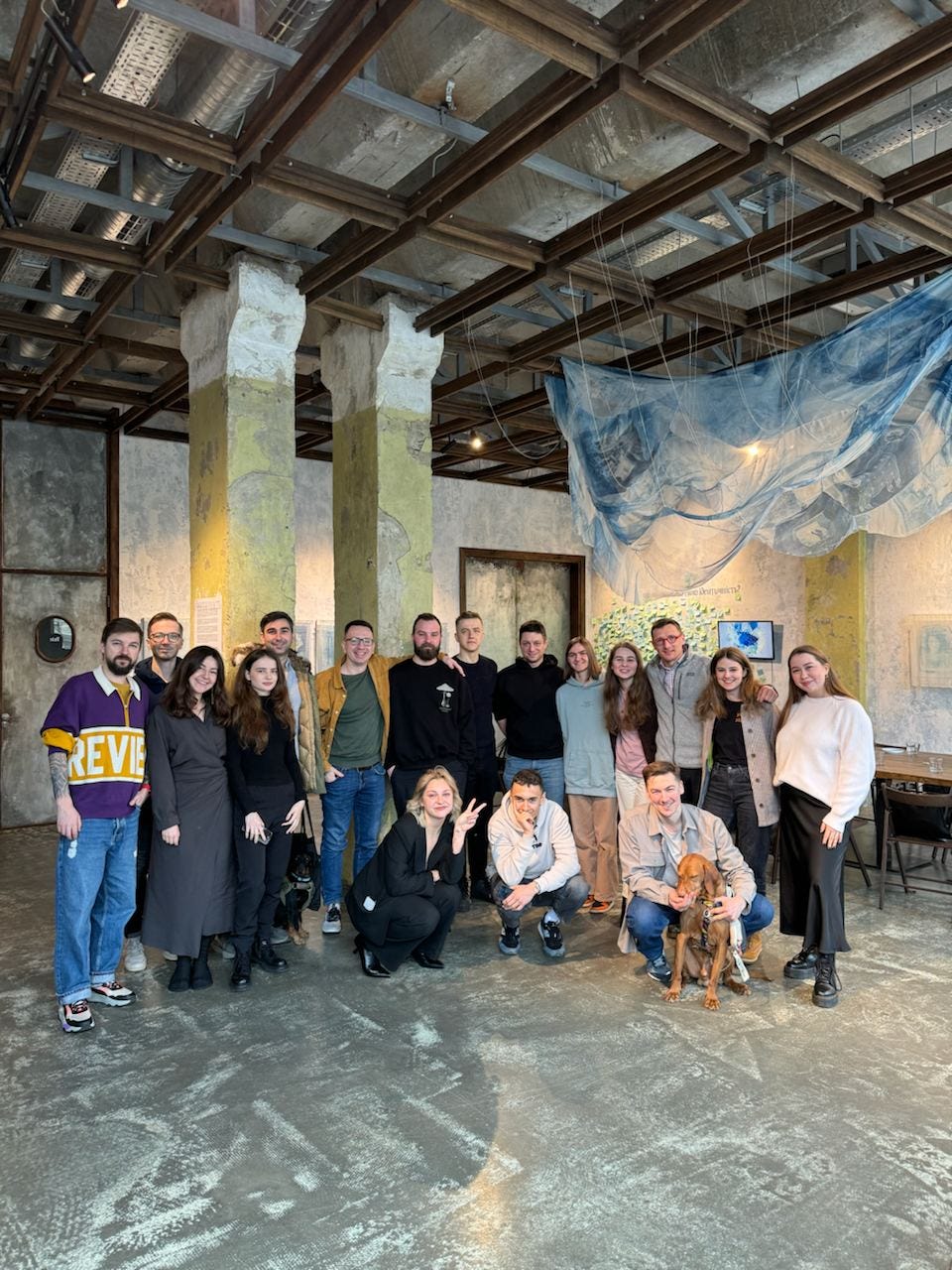May 1, 2024
August 16, 2025

In the era of digitization and innovation, we often witness the birth of new educational platforms that not only transfer knowledge but also revolutionize the approach to learning.
One of these breakthrough projects is the EdTech startup Projector, whose founder is Oleksandr Tregub.
Currently, Oleksandr is one of the mentors of the Mission Possible venture builder program, as part of which a business breakfast was held, where he shared his expertise and thoughts on the transformation of EdTech startups. The Center of Innovation and Entrepreneurship /nnov8 created the Mission Possible program with the support of the Western NIS Enterprise Fund and u.ventures in partnership with the Saïd Business School, University of Oxford.
Transformation of the educational program is an integral part of development:
“Our educational program will inevitably change, and I am confident that in about 3–5 years, half of Projector will be teaching completely different things,” says Oleksandr Tregub.
At Projector, at some point, it was noticed that all graduates started writing the same motivational letters to companies, sending identical CVs, and recruiters on the other side were just bewildered because previously they could distinguish who was cool and who wasn’t just from the letter, but now everyone is just the same. Projector didn’t and doesn’t do that. Their main approach is to remain unique in the market, not making career promises and taking a different path. Students know: that if you study well, you’ll be picked up by a top company, and if you do poorly, they won’t recommend you.
These words reflect the essence of what the Projector team is trying to achieve — to create a fair and effective education system that meets the needs of the market and helps everyone find their place in the professional world.
“I create conditions where if you don’t know the history of 19th-century art, you just won’t do cool homework, and you’ll lose to others who are interested in it. I do it because it works, but it’s difficult for less experienced teachers to do,” says Oleksandr Tregub.
A progressive view of education requires us to reconsider the classical role of universities. In particular, Oleksandr notes: “We’ve familiarized ourselves with these rules and decided not to play by them. So our plan now is to build a progressive and powerful ecosystem that will become an alternative for anyone who critically looks at traditional education. And we see that this is already happening.”
Due to the influence of AI, many professionals are faced with the fear of job loss, while young professionals are losing motivation for learning and mastering new specialties.
Tregub shares his vision on this:
“I think AI poses no threat to anyone; the threat lies in the desire to preserve what was done before, which has stopped working, and essentially, you are a threat to yourself due to conservatism and unwillingness to change.”
Soft skills essentially remain the foundation, without which it is impossible to become an expert and professional. This is the opportunity to lead processes and become the world’s best AI specialist, and right now, there is a unique opportunity for this.
Today, as the world changes at an incredible speed, such initiatives and initiatives play a key role in shaping a new generation of future entrepreneurs and professionals. They allow us not only to learn but to create, experiment, and innovate — this is the mission that every participant in the Mission Possible program strives to accomplish.